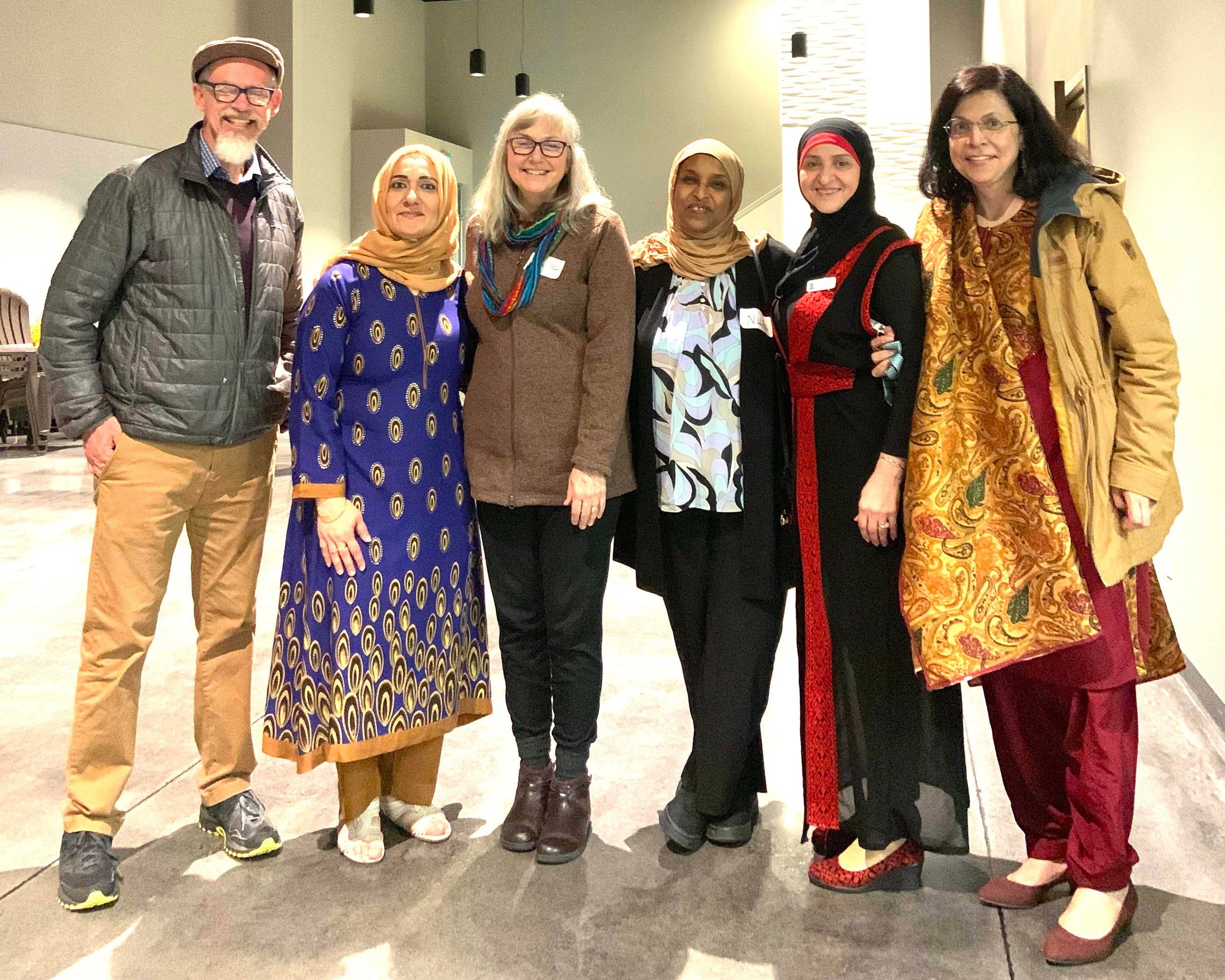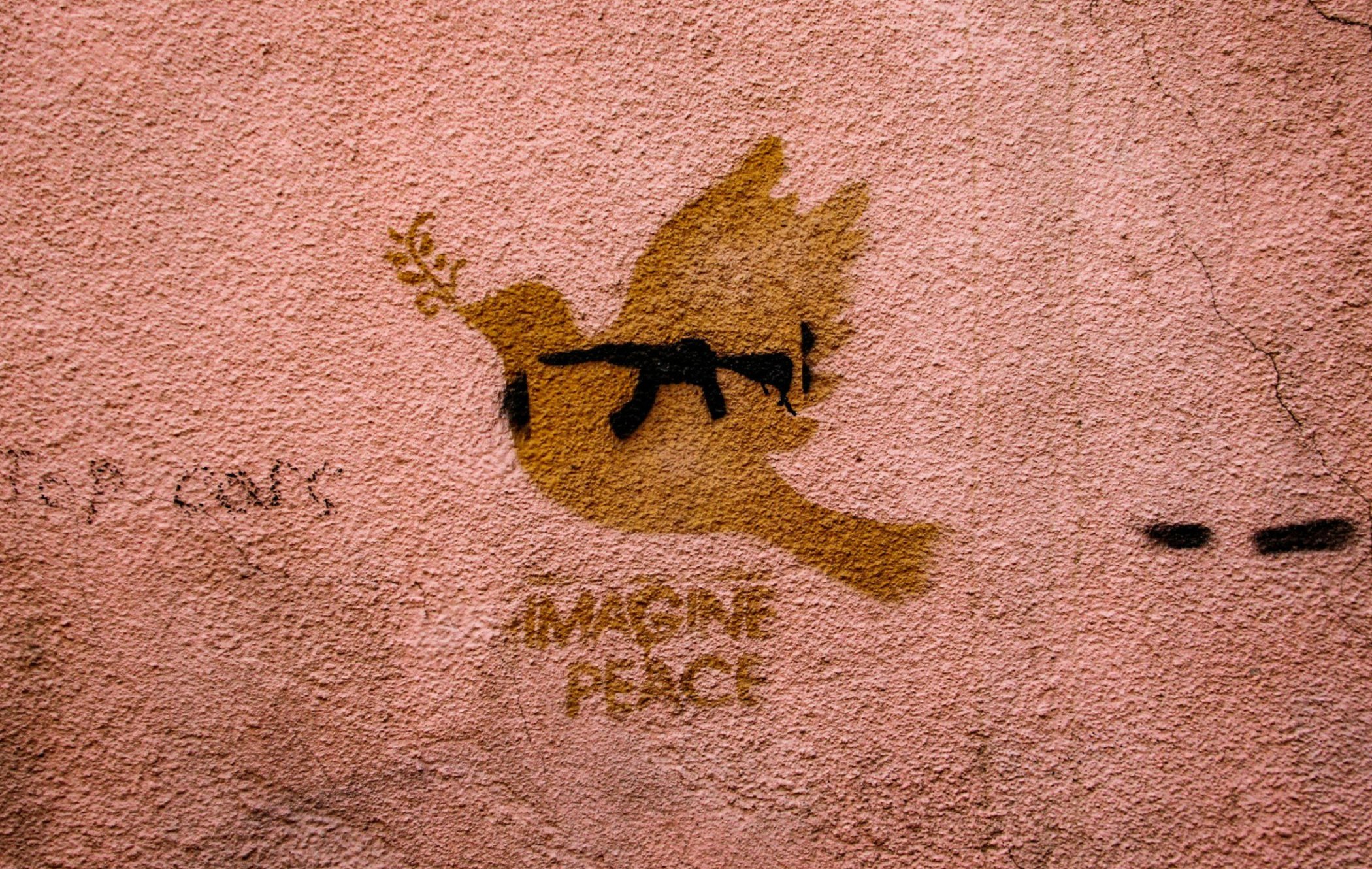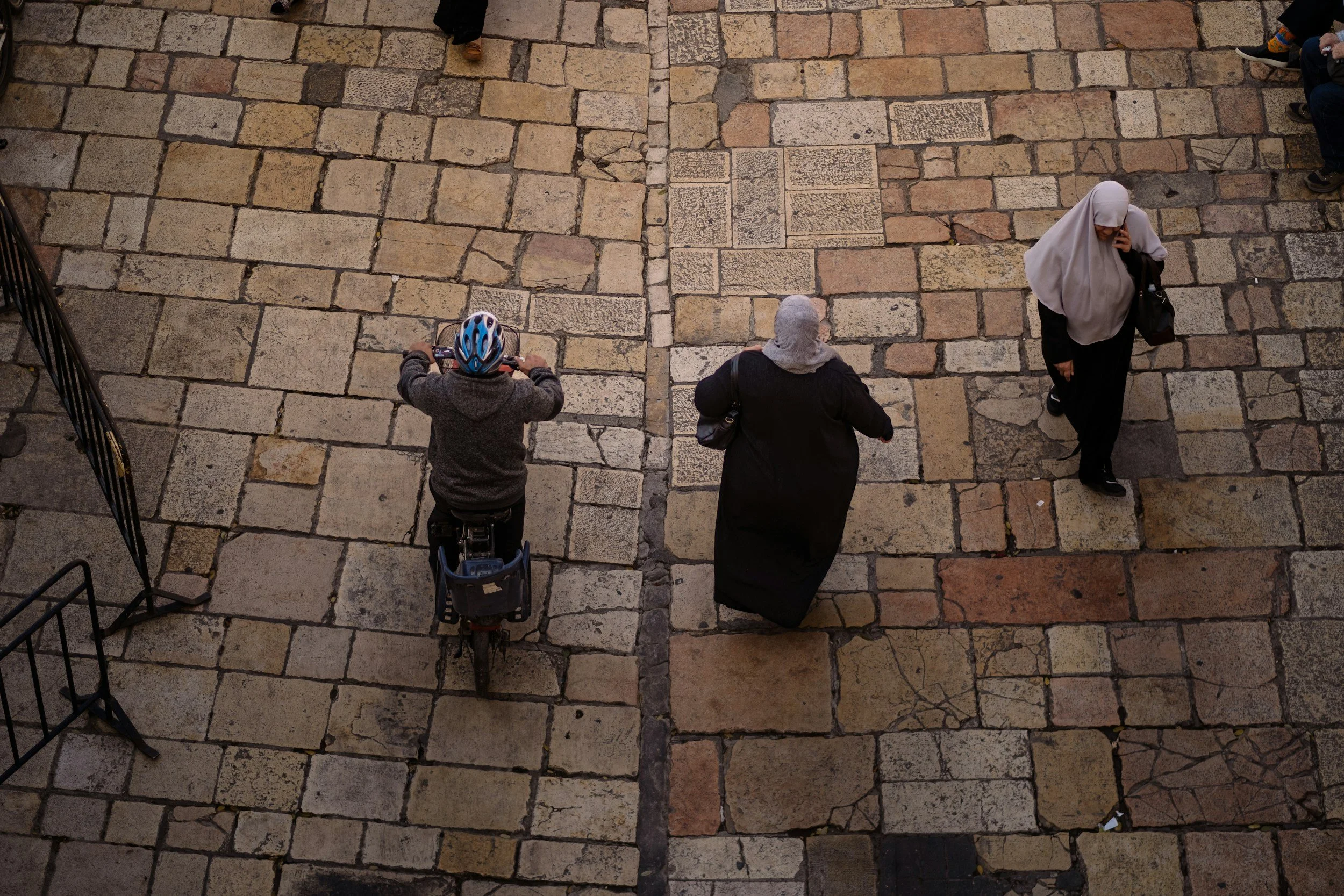Peacebuilding: A More Christlike Witness
by Bryan Carey
In our polarized and war-torn world, Christians are increasingly interested in peacebuilding. A key set of questions that we keep hearing has to do with the relationship between peacebuilding and Christian witness:
Is peacebuilding supposed to lead to witness?
Does Christian witness even matter in light of so much division and conflict?
What is Christian witness? Is it mainly about expressing religious convictions through our words?
Or is it about serving as a living example of one’s faith?
During our August meeting for the Christian Peacebuilding Network, we discussed the topic “Peacebuilding and Witness” and some of our Palestinian Christian peacebuilding friends and colleagues shared their pain about how much “witness” - when misunderstood as essentially verbal proclamation - has done much more harm than good in places like the Holy Land. Instead, they passionately shared about how our witness is actually everything we do, both with our words and in our actions, when we “join in the liberating and healing work of Jesus toward a just peace.”
Witness, in a religious sense, is professing or affirming one’s faith or allegiance. Our Christian witness must align with Jesus, his way, and his mission. Jesus’s mission is to liberate and heal everything toward holistic, just peace (shalom, eirene). In other words, Jesus’s mission — God’s mission — is peacebuilding.
When Christians catch a glimpse of God’s grand vision of shalom–eirene, we realize that right beliefs play only a small part of God’s holistic healing work toward just peace. This clarification of our vision will then begin to transform our priorities related to Christian witness, so that learning to follow Jesus in his work for healing, justice, and peace is more important than simple verbal proclamation. Rather than asking about how peacebuilding leads to proclamation, our new priority is peacebuilding: proclaiming peace, training and praying for it, preaching and teaching about it, and actively collaborating with all our diverse neighbors to build it, which also leads to new questions about the role of spiritual conversations and how they might (or might not) contribute to Jesus’s sacred healing work of peacebuilding.
Our witness, then, is everything we do to follow Jesus in his liberating and healing work toward God’s holistic, just peace. This includes how we communicate in ways that contribute to healing, connection, love, justice, liberation, and more; and it also includes how we follow Jesus practically in his work to heal us as individuals, families, communities, and whole societies.
When Christians recognize that the work of peacebuilding is our witness, a new paradigm for Christian vocation emerges that is faithful to God, holistic in scope, and credible and attractive to the world around us.
A Faithful Witness
Peacebuilding is faithful to God’s mission and Jesus’s call because peacebuilders are quite literally proclaiming God’s vision of peace and following Jesus in his work to heal and reconcile all things. Jesus’s mission is not to make everyone conform to the correct theological beliefs, even though our theologies and beliefs can deeply impact how we relate to one another and to God. According to the biblical narrative, God’s vision is holistic and just peace (shalom / eirene), and Jesus’s mission is to build that peace. When we learn about and train for peacebuilding, we are quite literally training for God’s work to heal and reconcile all relationships.
What’s more, the essence of faith in Jesus lies not in doctrinal beliefs but in Christlikeness. Peacebuilding, with its focus on fostering empathic understanding, healing, and the pursuit of reconciliation, actively molds individuals into living embodiments of Christ’s teachings (i.e. discipleship!). The ultimate goal of faith is not intellectual belief but transformation, and peacebuilding serves as a transformative journey toward Christlike character and ultimately God’s holistic, just peace.
A Holistic Witness
Peacebuilding is like a healing balm for a wounded world, aiming to break cycles of hurt and pain. By addressing the root causes of conflicts, peacebuilding goes beyond superficial religious fixes, working towards the holistic well-being of individuals and communities. It aims to heal individuals and communities so that those who have been hurt are not destined to perpetuate harm. As Christian peacebuilders, we proclaim peace, train and pray for it, preach and teach about it, and actively collaborate together to build it. This peace is relevant both for you and me as individuals, as well as for our families, churches, communities, wider society, and the world.
The breadth and depth of Jesus’ work – to proclaim God’s reign of peace, heal people, welcome the marginalized and outsider, challenge power structures, and proclaim and model God’s upside-down kingdom – shows us how peacebuilding is a truly holistic witness.
A Credible and Attractive Witness
Peacebuilding is a credible and attractive witness, because engaging in tangible, compassionate actions through peacebuilding demonstrates authenticity and a genuine commitment to the well-being of others. Christians and non-Christians alike are drawn to actions that demonstrate love, compassion, and a genuine commitment to community well-being. Peacebuilding fosters collaboration, understanding, and respect for diversity, which makes it credible and appealing so others might join in the collaborative pursuit of holistic and just peace, regardless of their theology or religious identity.
Even more, peacebuilding involves addressing systemic issues and advocating for justice, aligning with and following Jesus and his work to care for and lift up the marginalized and oppressed. This involves the uncomfortable work for communities to self-interrogate and recognize when they bear some responsibility for the very roots of conflict: greed, inequity, injustice, and more. True peacebuilding demands that we reflect on our role in divisions, injustice, and conflict, and open ourselves up to how we might be part of the solution.
Our peacebuilding witness is credible and attractive to non-Christians when we both demonstrate a genuine commitment to the well-being of others and recognize our own complicity in the roots of conflict. In that way, other communities can begin to trust our intentions, build partnerships with us, and collaborate together toward God’s holistic and just peace.
Not a Time for Silliness
Our peacebuilding witness is faithful to God, holistic in scope, and credible and attractive to a world that is tired of religious supremacy and eager for a more Christlike Church. When we prioritize winning theological arguments with a world weary of Christian supremacy, the witness of the Church dies. Instead, peacebuilding is our witness. As we proclaim, teach, train, pray, and collaborate for peace, we are bearing witness to the very mission of God to heal and reconcile all things.
“Christianity is a lifestyle – a way of being in the world that is simple, non-violent, shared, and loving. However, we made it into an established ‘religion’ (and all that goes with that) and avoided the lifestyle change itself. One could be warlike, greedy, raciest, selfish, and vain in most of Christian history, and still believe that Jesus is one’s ‘personal Lord and Savior’ … The world has no time for such silliness anymore. The suffering on Earth is too great.”
Richard Rohr
Bryan is Peace Catalyst Director of International Peacebuilding, based in Bosnia and Herzegovina. In 2016 Bryan and his wife Stephanie moved to the Balkan region, where they have been learning alongside and supporting the work of Muslim, Catholic, and Orthodox peacebuilders. Bryan hosts workshops, conducts trainings, and teaches about peace-oriented theology, peacebuilding practices, and how Christian groups can get involved in community peacebuilding. Learn more about Bryan here.





